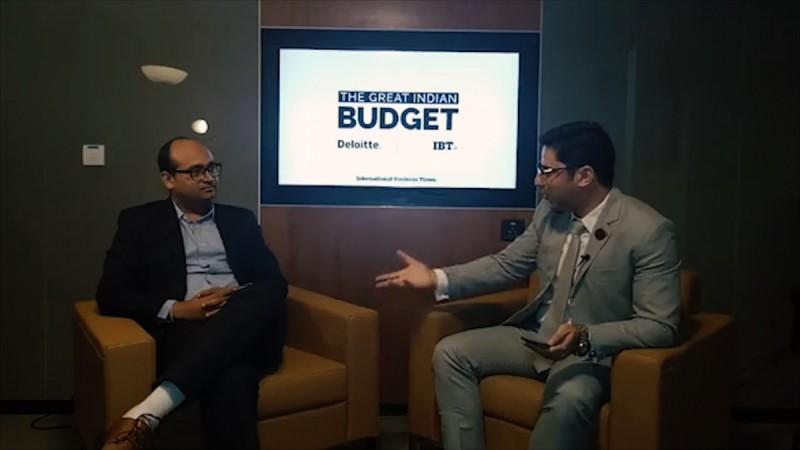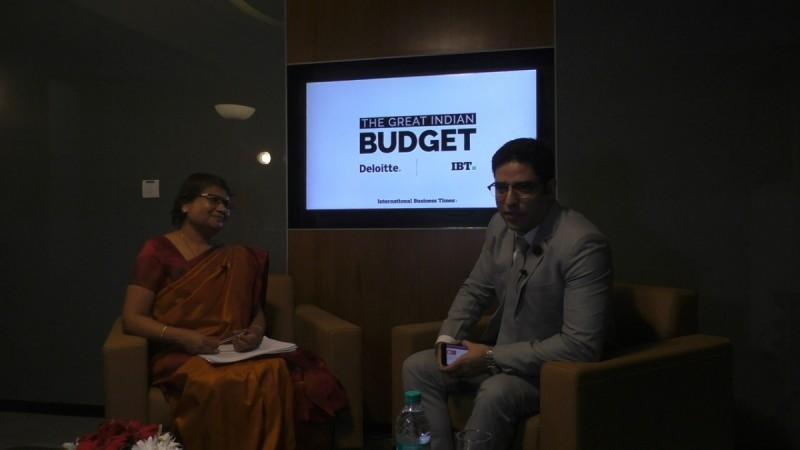The middle class and salaried people had a lot of expectations from the Union Budget 2018. There were speculations that the finance minister would present a populist budget with the general elections of 2019 in mind and propose some tax relief.
However, finance minister Arun Jaitley's Budget Speech in the Parliament on February 1 dashed all such hopes to the ground.
Watch: Experts decode the Union Budget 2018 on IBT talk show
In a conversation with International Business Times Executive Editor Danish Manzoor, two experts from Deloitte India -- Kalpesh Maroo (Direct Tax) and Saraswathi Kasturirangan (Personal Tax) -- evaluated the Union Budget 2018.
Corporate sector is hugely disappointed:
Kalpesh Maroo, direct tax expert and partner, Deloitte India, says, "There is not much for the corporate sector in this budget. If we leave the private health sector alone, there is nothing for the corporate world to cheer about."
On being quipped on how this budget is going to translate for the startups, he said: "Every time government takes any decision regarding the startups, they are very incremental, whether it's the eligibility criteria for starting it or the tax slabs. But we need to look at it as a whole."

Maroo also suggested that startups not only need tax cuts and benefits but the government also needs to cut the red tape for their smooth functioning. "When an expert committee is made on this, they should need to check on the ways how to make life easy for start-ups rather than just boosting red tape work culture," he said.
ALSO READ: Attention bitcoin traders! The taxman is after you
The direct tax expert also talked about the major changes in corporate tax rules proposed in Budget 2018. He said, "Amendment will be particularly beneficial for the micro, small, and medium scale enterprises (MSMEs), it does not offer any relief for big companies." However, he thinks that it is a positive move as most of the companies in India will come under this category. "Finance minister has said that 99 percent of the companies will come under this new rule. Companies with a turnover of less than Rs 250 crore in FY17 would be required to pay tax at 25 percent (and not at the erstwhile rate of 30 percent) in FY19."
ALSO READ: Car sales January 2018: Here's how Maruti Suzuki, Toyota, Hyundai, Ford and others automakers fared

Increase in the cess is like chilli on the cake:
Saraswathi Kasturirangan, personal tax expert and partner, Deloitte India, explained what the standard deduction of Rs 40,000 would mean to taxpayers. "Simply said, if anyone falls in the 30 percent tax rate bracket, then he will be able to save roughly around Rs 12,000 of tax gains and even at the minimum level of 10 percent, a person would be able to save around Rs 4,000 per annum."
However, she mentioned that the reality is far from those calculations. "Now let's talk about not the icing but chilli on the cake. The finance minister has increased the cess on Income tax from 3 to 4 percent. It is definitely going to impact all of us," Kasturirangan said. The budget proposal to increase the cess while maintaining the status quo on tax slab has certainly miffed the middle class, she added.
ALSO READ: Galaxy Surfactants IPO: All you need to know
She says: "This cess will eat into the savings which a person will make with the standard deduction of Rs 40,000. So if a person is earning 10 lakh rupees annually, then he will be able to save a mere 35 rupees and that sounds really awkward." She also felt that there's nothing much for the youngsters in the budget. "This thing could really have been considered but it's really disappointing to see as there is nothing for the youth of this country in this budget," she said.

















